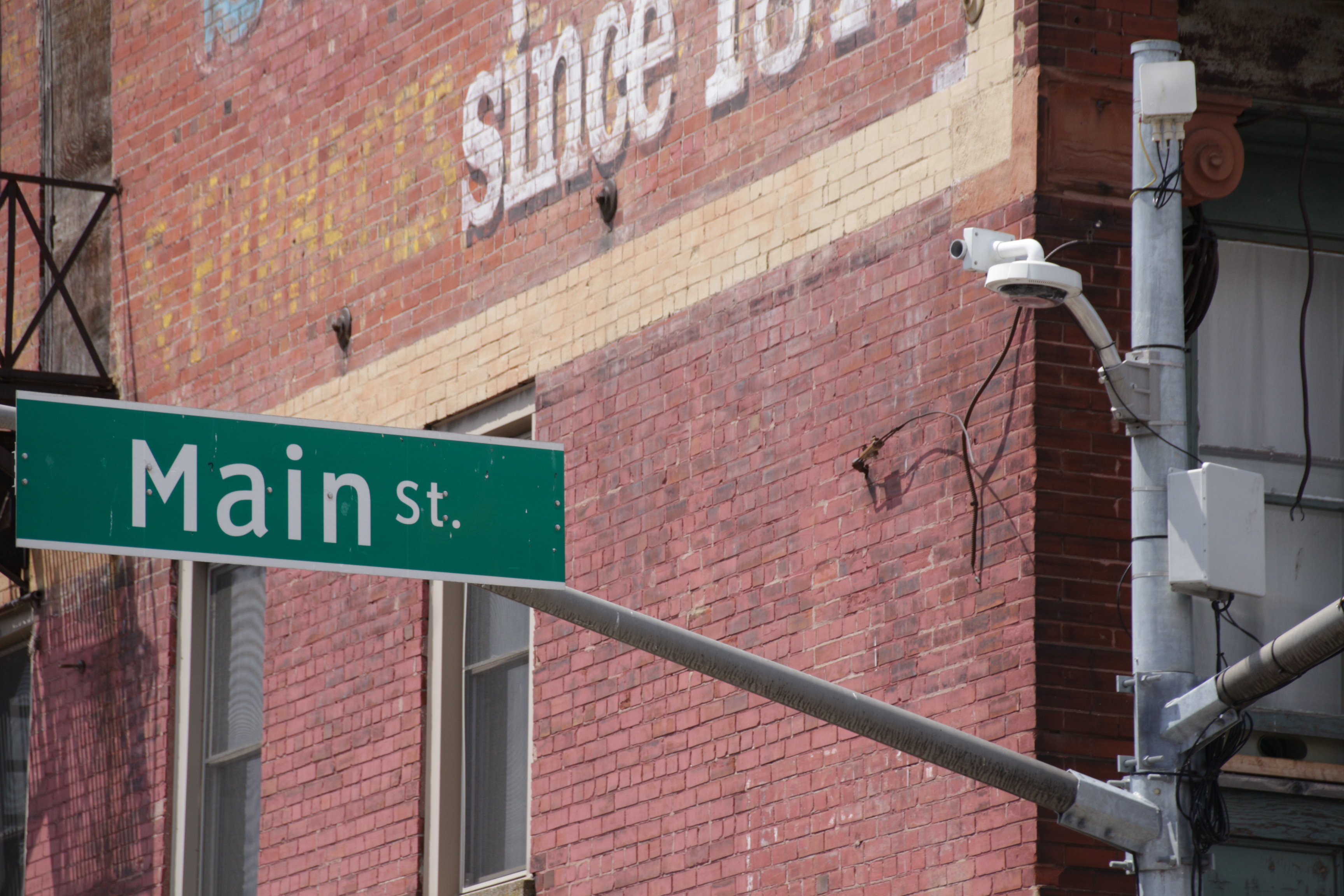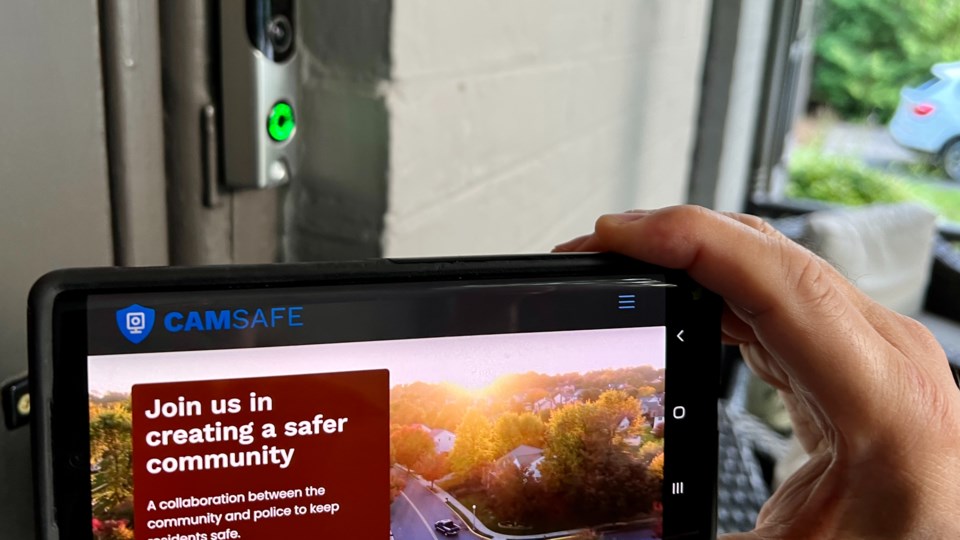A program designed to help police investigate crime more efficiently by mapping available security cameras in the community is gaining momentum and could make its way to Waterloo Region.
CamSafe, an online registry launched by Belleville Police Services in 2021, is being embraced by police across the province for its interactive way to partner with residents and business owners willing to share security camera video.
Belleville’s Staff Sgt. Jeremy Ashley, whose inspiration helped establish CamSafe, describes it as a game changer. The idea was borne out of exasperation several years ago after he lost precious time searching for security footage while investigating an attempted murder.
“We were in the car for eight hours,” he said, recalling his frustration. “There has got to be a better way to do this.”
After researching projects across Canada and the United States Ashley helped launch a “next level” online registry enabling police to find security cameras, and fast.
CamSafe invites individuals, businesses and even government organizations to add basic contact information to its database, providing police with a quick glance guide to locations of security cameras. Police can reference the database for registered cameras near a crime scene and contact camera owners to request video.
Since its launch, CamSafe has become an essential tool, whether investigating impaired drivers, crashes or thefts, said Ashley.
“It’s grown into being part of an officer’s workflow,” he noted. “I can tell you that in every single major event or really any scene that we have in our city, detectives or our plain clothes people that are working cases are using CamSafe all the time.”
More than 3,000 cameras are registered in Belleville’s communities, reflecting a mix of homes, business and even schools and municipal facilities.
The project has been championed in many communities and is being rolled out by Ontario Province Police, with frequent announcements being made about participating detachments.
“It just has caught fire and it has exploded,” said Ashley. “It’s great to see police services across the province embracing it.”
Although CamSafe has not been implemented by Waterloo Regional Police Services, plans are underway to review its potential.
“We are not currently using CamSafe,” said information officer Const. André Johnson, “but we are looking at the viability of the program and examining how it could assist our investigations, and ensure community safety.”
The program is described as voluntary, as sign-up is optional and registrants can delete information at any time. The database only documents location and contact information – as well as which direction cameras face – but does not give police direct access to cameras.
Ashley is familiar with concerns about privacy and police overreach, but answers critics with simple assurances.
“This isn’t a situation where the Big Brother is watching,” he said. “It’s only the contact information for the camera owner.”
While Ashley maintains the program has been instrumental in solving crimes, he insists the real bonus is expanded community collaboration.
“For me it’s so refreshing to see the public partner with the police in such a positive way,” he explained. “Feedback is extraordinary.”

While video surveillance initiatives like CamSafe might have the best of intentions, there’s much to examine when it comes to protecting individual rights, according to Krystle Shore, a PhD candidate in University of Waterloo’s Sociology and Legal Studies. Her work focuses on police, privacy and surveillance.
Shore’s research has left her skeptical as to whether surveillance programs reduce crime and she calls for increased transparency, saying such claims should be supported by open source evidence.
She also challenges claims surveillance initiatives provide greater community safety, questioning who is actually being protected. Her studies point to a greater protection for the community’s “privileged”, not those marginalized by society. Shore contends that populations that are “underhoused” or “racialized” are disproportionately viewed as suspicious, especially when caught in the crosshairs of security video.
“We need to slow down and look at whose interests are really being served here and whose are not, who’s being left out of the conversation all together.”
When reviewing CamSafe’s program, Shore expressed concern about language encouraging people to become part of the safety solution.
She maintains that while it sounds positive on the surface, it can place unwarranted responsibility on civilians to play a role in community protection, something that can prove division and cultivate fear and suspicion. She said messages also downplay the fact that the database registry is a police endeavour.
“It’s drawing us into public safety,” she said. “At the same time it’s promoting this culture of fear, this culture of suspicion within communities. It blurs the boundary of where this community love, this community safety ends, and this sort of fear or paranoia of some unknown other begins.”
She is also cautious of using extreme examples of success to promote use of surveillance, especially when they can heavily influence opinion.
“Those good intentions are what can prevent something from going unquestioned.”
That’s not to say initiatives striving to make positive change aren’t worth exploring, said Shore.
“I certainly don’t question anyone’s intention to do good in their community,” she explained. “We’ve just got to slow it down and question it a little bit.”


